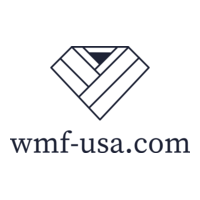Modern technologies are rapidly changing all industries, and the production of kitchenware is no exception. In the era of globalization and growing demand for high-quality products, transparency of supplies and quality control at all stages of production play an important role. One of the most effective solutions in this area has become blockchain – a decentralized technology that ensures the immutability of data and open access to information about each stage of the supply chain.
The use of blockchain in the kitchenware industry allows manufacturers, distributors and end consumers to obtain reliable information about the origin of raw materials, the conditions of their processing and compliance with quality standards. In this article, we will analyze how exactly blockchain increases the transparency of supplies, how it protects consumers from counterfeiting and how its implementation contributes to increasing trust in brands.
How Blockchain Brings Supply Chain Transparency
One of the main problems with traditional supply chains is limited visibility into processes. Many companies face data falsification, delays in logistics, and insufficient quality control of raw materials. Blockchain solves these problems by creating an open and immutable database for all participants in the supply chain.
How does this work?
● Every stage is recorded in the blockchain – from raw material extraction to production, storage and transportation.
● The data cannot be changed or deleted – information about deliveries and production processes remains unchanged, which eliminates fraud.
● Real-time verification – any participant in the system (manufacturer, supplier, buyer) can verify the authenticity of products through blockchain records.
This approach not only makes the supply chain more transparent, but also helps identify problem areas in logistics, accelerating the process of delivering quality products to the market.
Guarantee of authenticity and protection against counterfeiting
Counterfeit kitchenware is a common problem, especially in the premium segment. Blockchain allows you to create a unique digital signature for each product, confirming its authenticity.
Anti-counterfeiting mechanisms using blockchain:
● NFT certification – each product is assigned a unique digital certificate that cannot be counterfeited.
● QR codes on products – customers can scan the code and receive information about the origin of the product.
● Tracking changes in the supply chain – any attempt to substitute products or falsify data will be visible to all participants in the system.
Thanks to these technologies, customers can be confident that they are purchasing high-quality and original kitchen products .
Improving quality control at all stages of production
Quality control is a key aspect of kitchenware production. However, traditional inspection methods are not always sufficient, as test and inspection data can be altered. Blockchain solves this problem by recording inspection results at every stage.
How does blockchain help control quality?
● Recording of laboratory test results – data on testing materials, heat resistance and safety of dishes is recorded in the blockchain.
● Digital audit – all checks are carried out automatically, eliminating the possibility of human error or falsification of reports.
● History of each product – if a defect is detected, you can quickly track where exactly the failure occurred and fix it.
This approach increases the responsibility of manufacturers and ensures that products meet the highest quality standards.
Optimization of logistics and reduction of costs
Supply chain efficiency directly impacts production costs. Logistics errors, cargo losses, and unauthorized route changes are common problems. Blockchain helps minimize these risks by providing transparency and automation of logistics processes.
How does blockchain improve logistics?
● Real-time cargo tracking – every movement of products is recorded in the blockchain, eliminating the possibility of losses.
● Smart contracts for automatic settlements – payments between suppliers and logistics companies are made automatically after the terms of the transaction are met.
● Minimize paperwork – digital records replace traditional delivery notes, speeding up the delivery process.
Thus, the implementation of blockchain allows not only to increase the transparency of supplies, but also to reduce the costs of their management .
How Blockchain Builds Brand Trust and Improves Customer Engagement
Consumers are becoming increasingly demanding of product quality and transparency of companies. Brands using blockchain can prove their reliability and attract more customers.
How does this work?
● Open access to production information – customers can check where and how products were manufactured.
● Security guarantee – blockchain allows you to ensure that materials and coatings comply with international standards.
● Loyalty programs – Some companies are introducing tokens or digital rewards for customers who use the blockchain system to verify purchases.
These benefits give brands a competitive advantage and build consumer trust .
Blockchain is becoming a key tool in the kitchenware industry, increasing supply chain transparency, ensuring product authenticity, and improving quality control. With decentralized data storage and smart contracts, manufacturers can optimize logistics, reduce costs, and protect customers from counterfeiting.
Companies that implement blockchain not only build trust in their brand, but also make production more efficient and environmentally friendly. In the future, this technology will play an even greater role in creating a secure and transparent supply chain.
Questions and Answers
Each product can be assigned a unique digital certificate (NFT), which is impossible to counterfeit. QR codes are also used to verify the authenticity of the product.
It records the results of all checks and tests, eliminating the possibility of their modification or falsification, which makes quality control more reliable.
Smart contracts automate payments, digital consignment notes replace paperwork, and real-time cargo tracking prevents losses.
